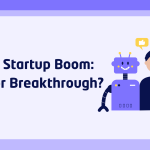Quick Take
While AI tools like ChatGPT are reshaping industries and workflows, adoption remains surprisingly low. Misconceptions, learning curves, and skepticism about AI’s reliability contribute to this gap, highlighting the challenges of integrating emergent technology into daily life.
A Complex Puzzle
A recent post in a technology forum struck a chord: the author was perplexed that many people, including professionals like their physiotherapist, weren’t leveraging AI tools like ChatGPT for even simple tasks. The comment thread exploded with insights, frustrations, and anecdotes that painted a nuanced picture of why AI adoption lags despite its potential.
Hurdles to Adoption
1. Steep Learning Curve
AI requires a specific skill set. As one commenter noted, “Most people want good results after one sentence of instruction.” Using AI effectively involves understanding prompts, providing detailed feedback, and refining outputs iteratively—skills that aren’t intuitive for everyone.
2. Reliability Concerns
AI’s infamous “hallucinations” erode trust. Multiple users cited examples where AI confidently delivered incorrect or fabricated information, from botched math equations to inaccurate medical insights. One cybersecurity professional lamented how LLMs often parrot marketing myths, like overhyping VPNs as a security measure.
3. Misaligned Expectations
There’s a common misconception that AI is a magical solution to all problems. When it fails to deliver instant, flawless results, users grow frustrated. As another commenter put it, “LLMs are tools, not experts. You still need the domain knowledge to validate outputs.”
4. Data Privacy Fears
The risks of feeding sensitive information into cloud-based AI systems deter many. “Feeding AI confidential business data would be insanely useful,” one commenter wrote, “but I just can’t risk it.” This concern underscores the importance of local AI models that prioritize user control over data.
The Benefits—For Those Who Push Through
For those willing to invest the time, the rewards of using AI are substantial. Users shared success stories ranging from optimizing workflows to personal growth. Some highlights include:
• Work Productivity: AI as a “digital secretary,” drafting polished emails or summarizing dense documents, was a game-changer for many professionals. One user even credited ChatGPT with helping them ace a job interview.
• Education and Learning: Several users described how AI helped them master new skills—from Latin to software testing—by acting as an on-demand tutor or brainstorming partner.
• Creative Projects: Whether generating story ideas or planning a dinner menu, AI proved to be a versatile assistant in personal and professional endeavors.
A Transitional Technology
Despite the current challenges, parallels to past technological revolutions—like the internet and smartphones—offer hope. As one commenter observed, “New technology develops faster than expected but gets implemented slower.” Widespread AI adoption may simply be a matter of time.
Editor’s Take
AI’s slow adoption reveals more about human nature than the technology itself. We’re creatures of habit, often reluctant to invest in learning new tools until necessity forces our hand. However, for those who embrace AI now, the advantage is clear: enhanced productivity, deeper insights, and a competitive edge in nearly every field. As one user aptly concluded, “The masses won’t thank you for showing them AI’s benefits. Use it to your advantage and get ahead.”
For AI to fulfill its transformative potential, it must become easier to use, more transparent, and consistently reliable. Until then, it’s a powerful tool waiting for skilled users to unlock its full capabilities.


